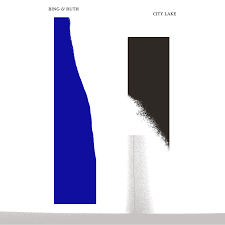Minimalism is a slippery thing. Throughout the late twentieth century, composers like La Monte Young and Philip Glass built a tradition of simplicity and repetition largely in reaction to the convoluted anthropocentrism of formalists like Schoenberg and Stravinsky – often absorbed in systems of their own creation such as serialism. John Cage and others distanced themselves from this anthropocentrism, notoriously relying on determinants like chance or automated human behavior (see Steve Reich’s seminal ‘Piano Phase’) to move beyond our anthropocentric history of composition. To quote Cage’s Silence, "one may give up the desire to control sound, clear his mind of music, and set about discovering means to let sounds be themselves rather than vehicles for man-made theories or expressions of human sentiments."
But as time went on, the nuance of this reaction has, in many ways, been lost. As minimalism has become canon, its distance from human agency feels largely forgotten. Taking from the now-historicised works of Brian Eno’s Apollo and Harold Budd’s Avalon Sutra, new artists have come to lean on fresher, more romantic notions of the style, ones grounded in a spectrum of the movement’s aesthetics, yet only ever approach the work in the interest in aesthetic beauty. Maybe it’s a product of film composition’s growing reliance on the movement’s aesthetics themes, but these days, minimalism often feels like a tame gesture of romanticized pleasantries, no longer steeped in rebellion.
Theorist and minimalist sculptor Donald Judd, in defense his own avant-gardisms, once said that "A work of art needs only to be interesting," but increasingly, I don’t believe this to be true. To be ‘interesting’ is to be judged on a scale of aesthetics firmly within normative categories—to be seen as transgressive from a vantage point of normativity. As Hal Foster once wrote in his essay "The Crux of Minimalism," "Interest is an avant-gardist term, often measured in terms of epistemological disruption. It too can become normative, but it can also license critical inquiry and aesthetic play."
Bing & Ruth have done remarkable things within the now-normative aesthetics of minimalism, finding a striking wealth of ‘aesthetic play’ within the movement. Their breakthrough 2014 album Tomorrow Was The Golden Age was a gorgeous, nuanced reclamation of the minimalist ensemble, recalling works like Reich’s Music For 18 Musicians or Eno’s Discreet Music, now parsed down into the subdued soft petal of the album’s piano-oriented repetitions. The release saw David Moore and co. pull their own palette through a refracted lens of beauty—firmly indebted to our now-canonized minimalist composers, yet still somehow stunning.
But years before Tomorrow Was The Golden Age, there was another album. Bing & Ruth’s 2010 debut, City Lake was a work further steeped in Reich’s composition, working within an eleven-piece ensemble to find a higher beauty above Reich’s repetition. RVNG Intl., previously responsible for the release of Tomorrow Was The Golden Age, has reportedly found the early white label test presses of the release, reissuing the "ultra-limited" vinyl edition to a wider audience in the wake of the success of Tomorrow Was The Golden Age.
At first listen, the album sounds like the precursor to Tomorrow Was The Golden Age you might expect, offering glimpses into the origins of the astute composition that Moore and co. would later refine on the 2014 album. Pieces like ‘Broad Channel / A Little Line in a Round Face’ and ‘City Lake / Tu Sei Uwe’ reveal the somber piano origins later actualised on Tomorrow Was The Golden Age, crafting lush, splintered melodies over tight drones and skittering electronics that swell into moments of heartbreakingly beautiful ambient composition. Others like ‘Put Your Weight Into It’ and ‘Rails’ feel more indebted to Moore’s Reichian influence, layering circular piano lines and parallel vocal harmonies into sonorous chaos and tense, spiritual discordance. ‘Here’s What You’re Missin’’ plays up the textural elements of the work, settling into a dusty memory of aurora glow against arctic winds and treaded tundra earth. A series of tones become an appeal to the most fundamental pleasures of recorded music: tension and resolution.
If we ever needed another Voyager record, if ever we again had faith that intergalactic life somewhere would appreciate our art, I’d nominate Bing & Ruth. Moore’s compositions use our most basic impulses of musical understanding – universal modes of tension and release through chords, contrapuntal lines, swelling drones, rattling electronics – to explore the harrowing depth of human tenderness in a way reactionary art movements have never done (or never sought out to do?). Bing & Ruth is lush minimalist romance; compositions reduced to core essentials, yet every ounce poised, articulate and indulgent on their own terms – from breathy piano lines to sharp textures and bellowing drones that rattle through stereos and triumph into the night.
City Lake is a stunning, humble record built on traditions we all understand, yet, somehow feels dizzyingly new. Certainly indebted to minimalism, the album scours the depths of orchestral repetition, filling up parts with idiomatic swells and jittery electronics, soft pedal piano and parallel vocal tones. It’s an album that feels raw and confessional when instrumental albums feel far from raw and confessional. It’s a grand statement veiled in intimacy that feels bright and bold, fresh-faced and dizzying through forms too simple to sound this good. It’s melodic restraint, eternal pastiche, rich, teeming chaos infinitum – a beacon on the edge of a chalky shore, light boundless in all directions.
<div class="fb-comments" data-href="http://thequietus.com/articles/19368-bing-ruth-city-lake-reissue-review” data-width="550">


